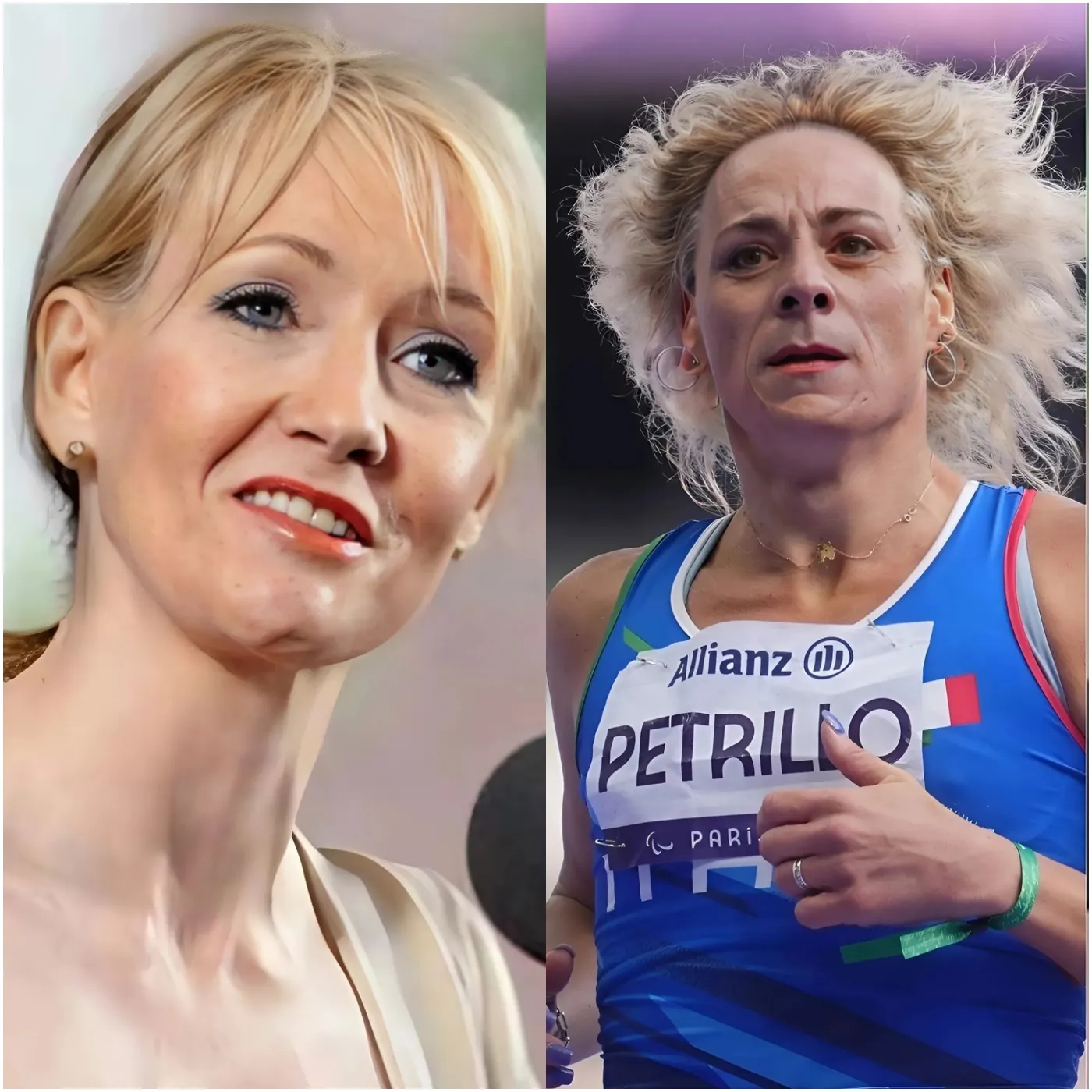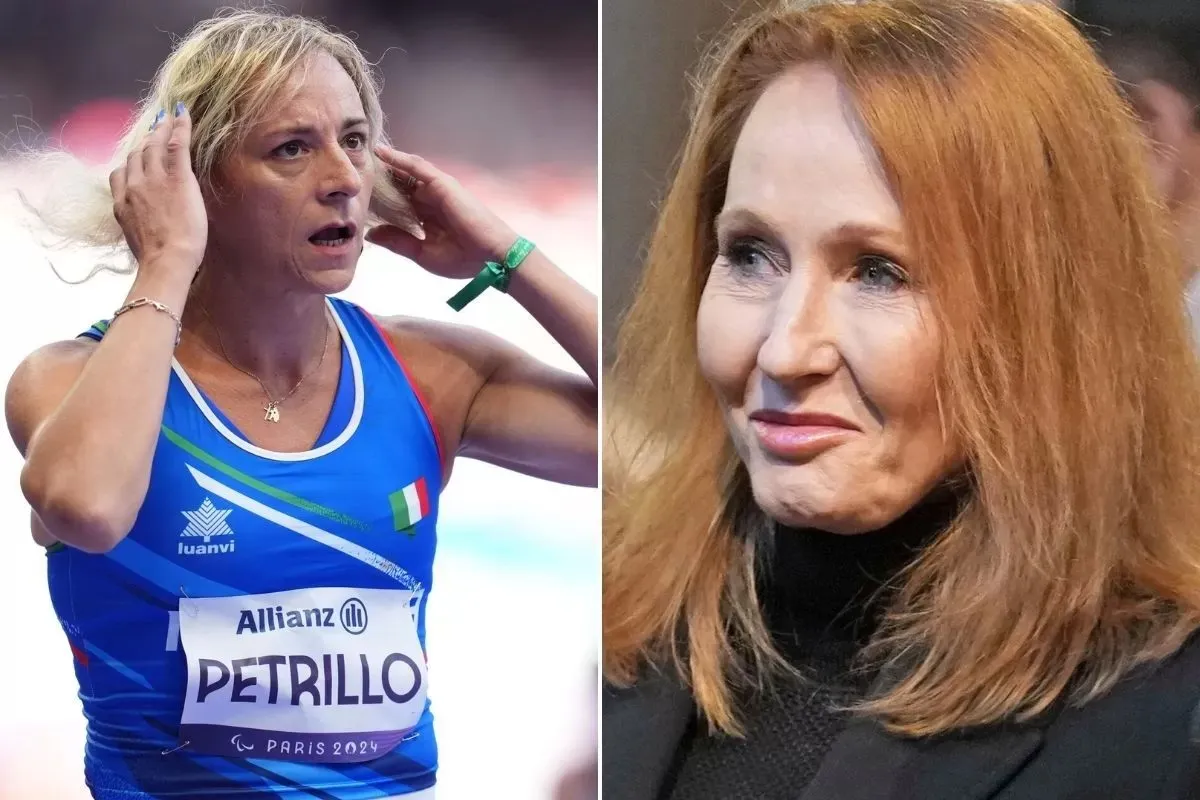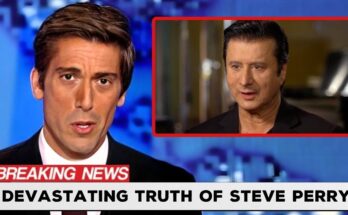Renowned author JK Rowling, known for her Harry Potter series and outspoken views on gender issues, has once again sparked controversy. This time, Rowling ignited a heated debate after labeling Valentina Petrillo, a transgender athlete, a “cheater” in a tweet that has since gone viral. The statement has polarized public opinion, drawing support and backlash from various corners of society, including athletes, activists, and fans alike.

Valentina Petrillo, an accomplished transgender athlete from Italy, has been making headlines for competing in women’s track events. Petrillo, who transitioned in her 40s, has broken several records in para-athletics, prompting both admiration and criticism. Supporters argue that her participation exemplifies inclusivity and the right to compete authentically. Critics, however, question whether her physiological advantages as someone who went through male puberty create an uneven playing field.
Enter JK Rowling. The British author, who has a history of commenting on gender and transgender issues, took to social media to weigh in on the debate. “Valentina Petrillo’s participation in women’s sports is unfair. This isn’t inclusion; it’s cheating,” Rowling’s tweet read. Her comment, while echoing concerns raised by some sports organizations and athletes, unleashed a torrent of reactions, both for and against her stance.
Rowling’s remark quickly trended on social media, with hashtags like #IStandWithRowling and #TransRightsAreHumanRights dominating discussions. Advocacy groups for transgender rights condemned her statement, calling it transphobic and harmful to an already marginalized community. Stonewall, a leading LGBTQ+ organization, released a statement saying, “Comments like these perpetuate discrimination against transgender individuals and undermine efforts to create an inclusive society.”
On the other side, some athletes and commentators supported Rowling’s stance, arguing that fairness in sports must be preserved. Sharron Davies, a former Olympic swimmer and vocal advocate for sex-based categories in sports, publicly endorsed Rowling’s views. “It’s not about hate; it’s about fairness,” Davies stated in an interview.

Rowling’s statement has reignited the broader conversation about transgender inclusion in sports. The International Olympic Committee (IOC) and other governing bodies have faced increasing scrutiny over their guidelines for transgender athletes. Current policies often require athletes to lower their testosterone levels for a certain period before competing in women’s categories. However, critics argue that this does not fully negate the advantages gained during male puberty, such as increased muscle mass, bone density, and cardiovascular capacity.
Supporters of transgender athletes counter these claims by emphasizing the importance of inclusion and representation. They argue that policies targeting transgender athletes are discriminatory and ignore the social, emotional, and physical challenges they face. “Sports should be about unity and celebration of diversity,” said Dr. Veronica Ivy, a transgender athlete and advocate.
Valentina Petrillo herself responded to Rowling’s comments in a heartfelt statement. “I have faced immense challenges as a transgender woman. Competing in sports is not about winning; it’s about being my authentic self and inspiring others to do the same,” Petrillo wrote. She also expressed disappointment at being labeled a “cheater,” emphasizing her adherence to all regulatory guidelines.
Meanwhile, several cisgender female athletes have voiced concerns over competing against transgender athletes, citing the need for fairness. “This isn’t about transphobia,” one anonymous athlete said. “It’s about ensuring that everyone has an equal chance to succeed.”
JK Rowling has stood firm in her stance, doubling down on her comments in subsequent tweets. She maintains that her views stem from a commitment to women’s rights and fairness in sports, rather than hatred or prejudice. However, her critics argue that her rhetoric contributes to a toxic environment for transgender individuals.

Rowling’s statements have had real-world consequences, with some fans distancing themselves from her work and others rallying to her defense. The Harry Potter creator remains a polarizing figure, seen by some as a defender of free speech and by others as a voice of exclusion.
The debate over transgender athletes in sports is far from over. As more athletes like Valentina Petrillo step into the spotlight, sports organizations will continue grappling with how to balance fairness and inclusion. Meanwhile, public figures like JK Rowling will likely remain at the center of these cultural and ethical battles.
In the wake of Rowling’s comments, several sports bodies have announced plans to revisit their policies on transgender participation. The issue’s complexity ensures that it will remain a hot topic in the worlds of sports, politics, and activism for years to come.
JK Rowling’s controversial comment on Valentina Petrillo has sparked a fierce and multifaceted debate. It highlights the tension between the ideals of fairness and inclusion, as well as the challenges of navigating transgender rights in competitive sports. While opinions remain deeply divided, one thing is clear: this conversation has amplified voices on all sides, forcing society to confront the complexities of gender, identity, and fairness in modern sports.


